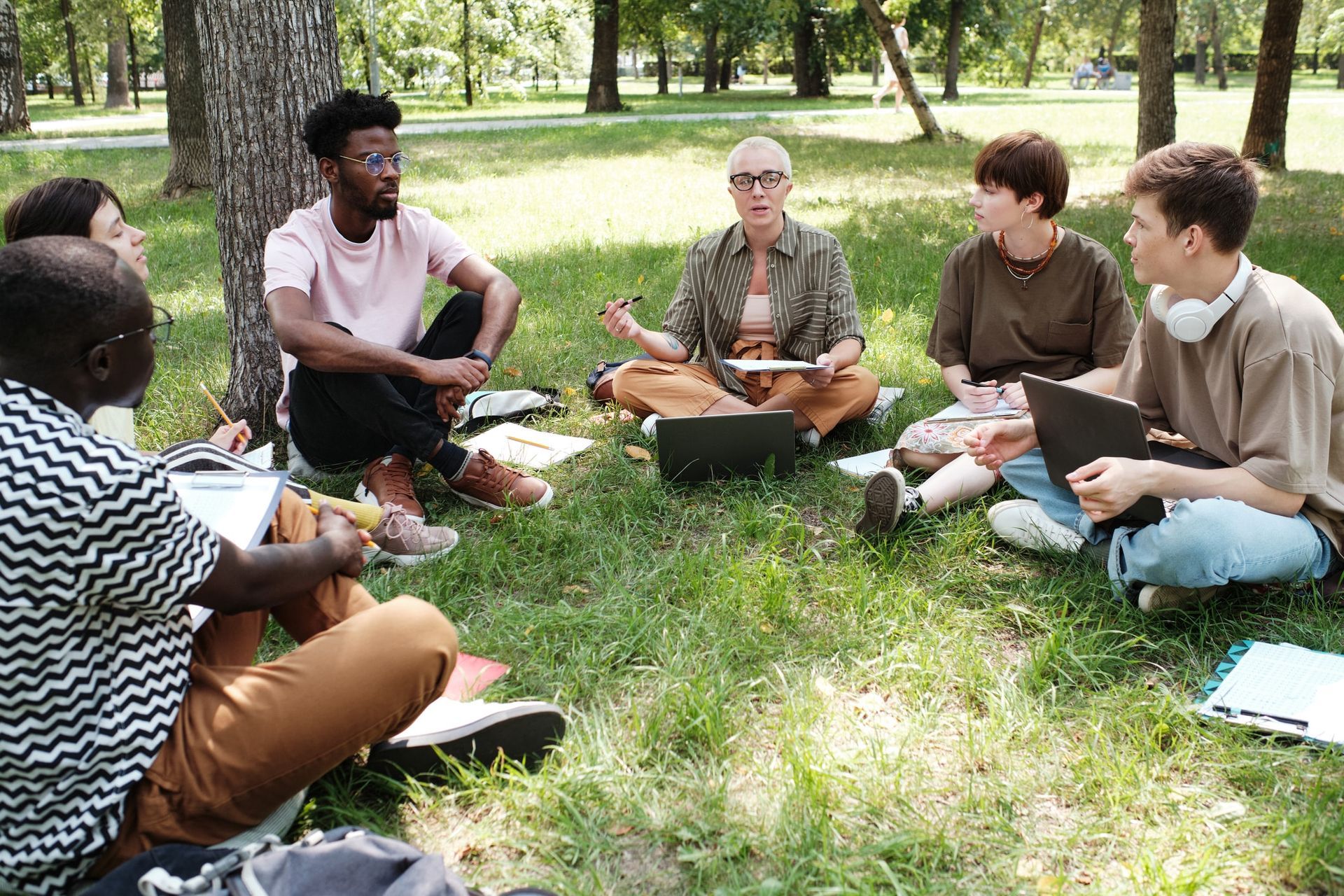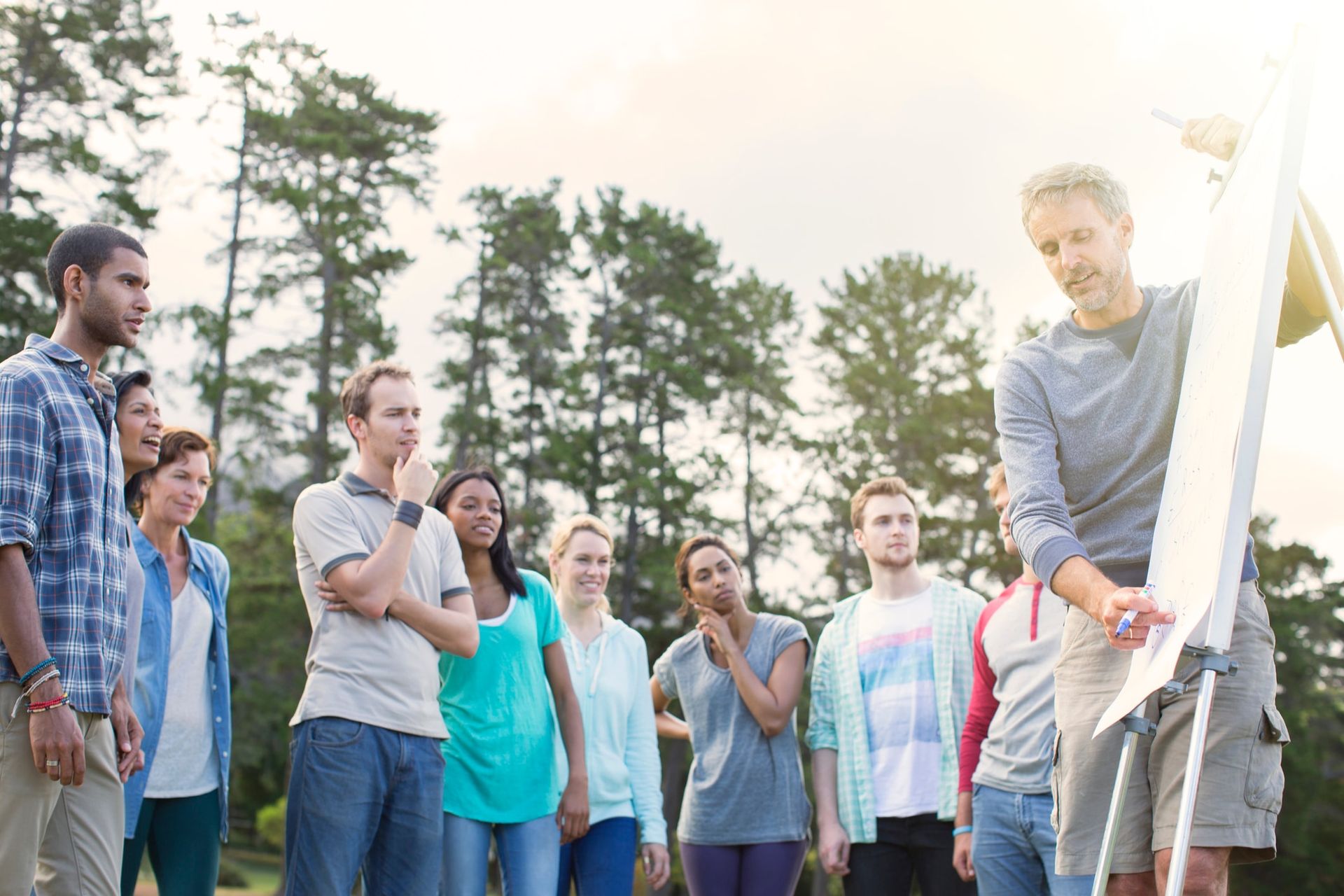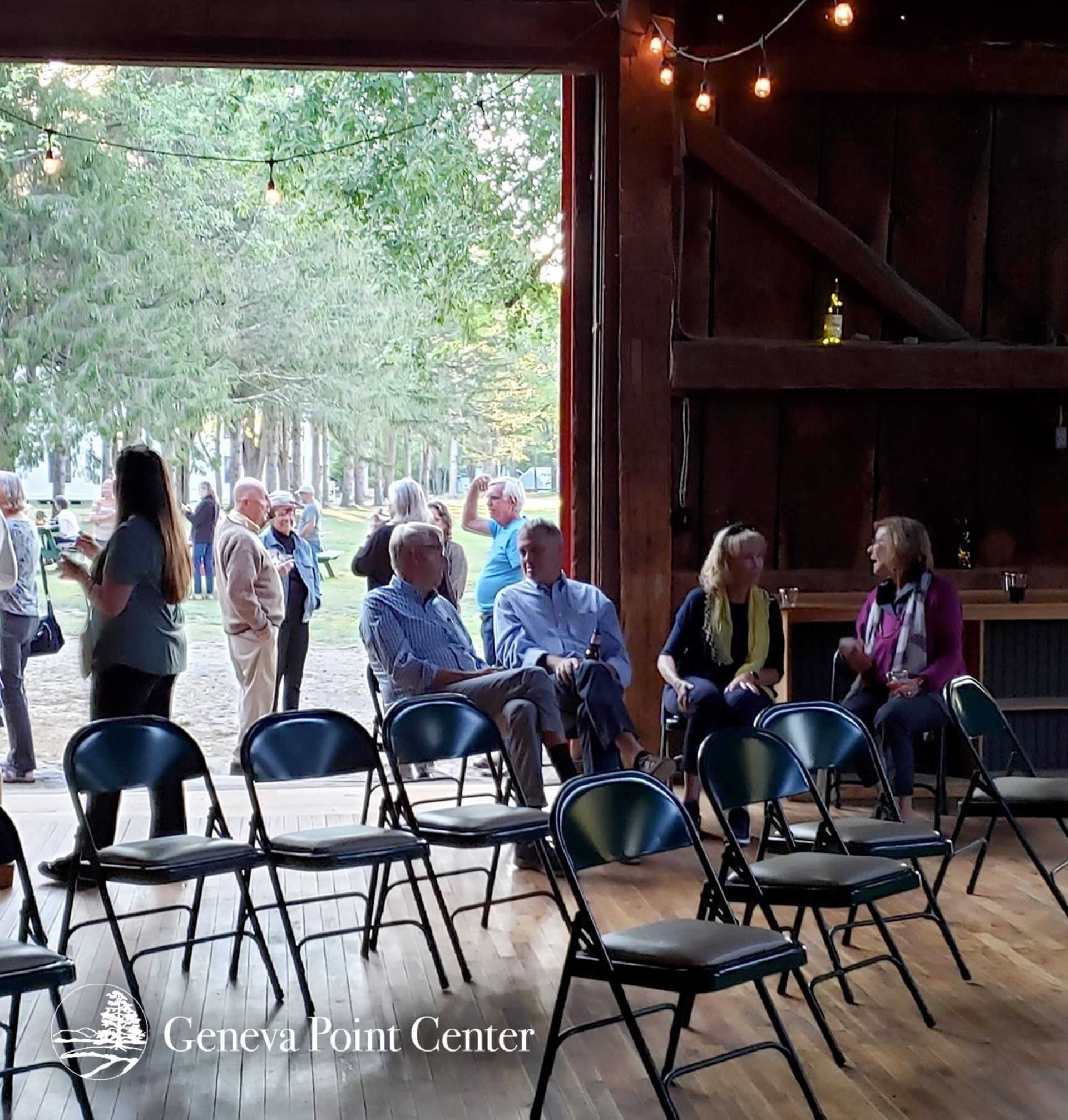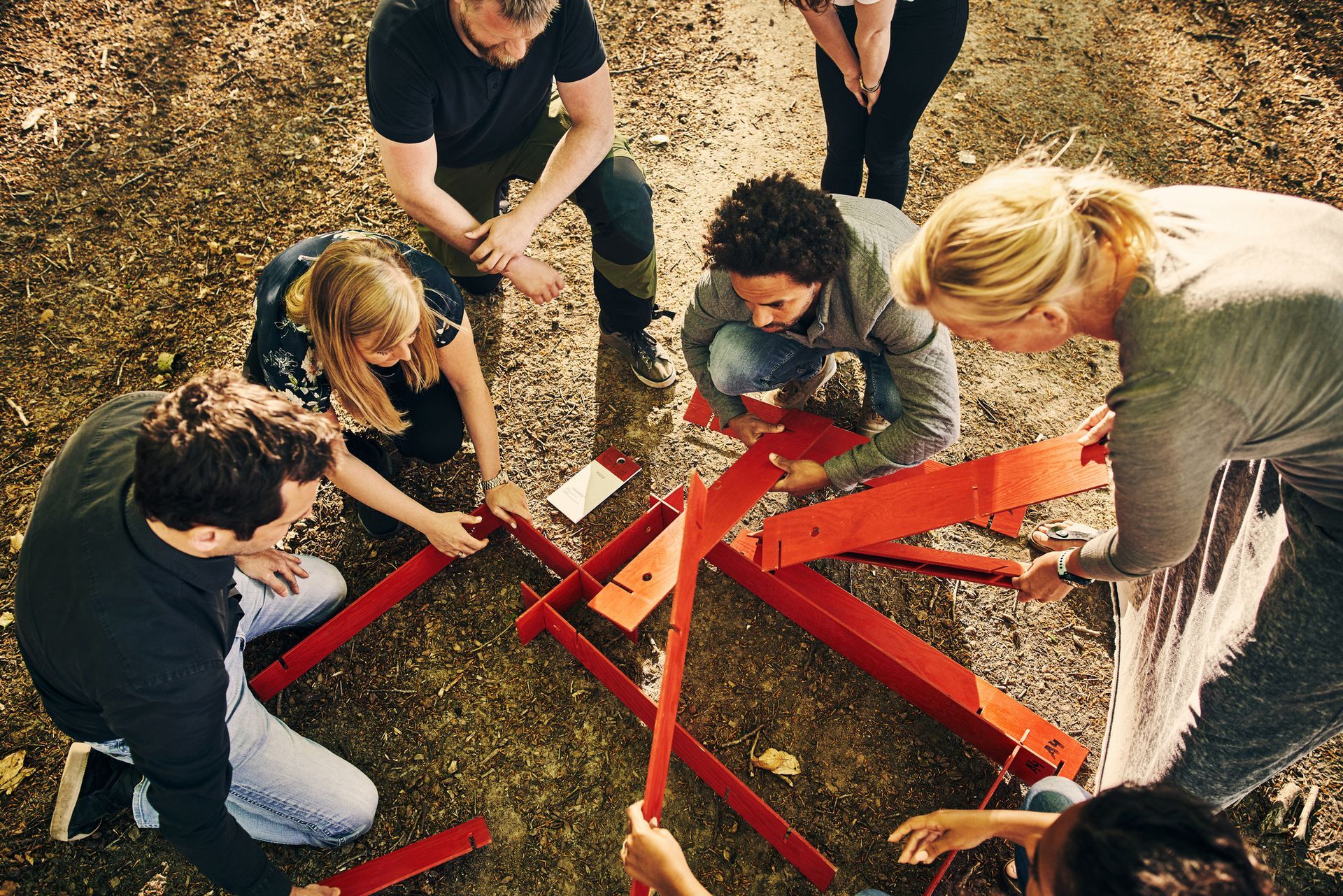Leadership Training Retreats: A Complete Guide to Transforming Your Team
In today’s rapidly evolving business landscape, organizations face unprecedented challenges that demand exceptional leadership capabilities. While 86% of companies conducting leadership training retreats report higher post-retreat engagement among their leadership teams, many organizations still struggle to design and execute programs that deliver lasting transformation. The difference between a successful retreat and a missed opportunity often lies in understanding what makes these immersive experiences truly effective.
Leadership training retreats represent far more than a temporary escape from day to day operations. They’re strategic investments in your organization’s most valuable asset – your people. When executed properly, these intensive programs can reshape team dynamics, enhance strategic thinking, and foster innovation in ways that traditional training sessions simply cannot match.
At Geneva Point Center in Moultonborough, New Hampshire, we’ve witnessed firsthand how the right environment combined with thoughtful programming can unlock tremendous potential within leadership teams. Our scenic lakeside setting provides the perfect backdrop for meaningful conversations, creative thinking sessions, and the kind of fresh perspectives that emerge when leaders step away from their usual routines.

What Are Leadership Training Retreats?
Leadership training retreats are immersive, off-site programs designed to develop leadership skills outside the traditional workplace environment. Unlike conventional training sessions confined to conference rooms, these retreats combine strategic planning, skill development, and team building in a focused setting that typically spans 1-3 days.
The power of leadership retreats lies in their ability to create psychological safety away from workplace pressures. When team leads and senior leaders gather in a relaxed environment like Geneva Point’s historic lakeside campus, they’re more likely to engage in the vulnerable conversations and honest self-reflection that drive meaningful professional development.
Most effective leadership retreats blend structured learning sessions with interactive activities and networking opportunities. This balance ensures participants engage fully while allowing time for the informal discussions that often produce the most valuable insights. The combination of formal presentations, hands-on workshops, and unstructured time creates multiple learning modalities that accommodate different learning styles.
Research from Cornell University demonstrates that experiential learning environments significantly improve retention compared to traditional classroom settings. This explains why leadership development programs conducted in inspiring locations like Geneva Point’s natural setting consistently outperform office-based alternatives.
Key Benefits of Leadership Training Retreats
Enhanced Communication and Emotional Intelligence
Leadership retreats create unique opportunities for developing communication skills through facilitated group discussions and peer-to-peer learning. When organization leaders step away from their usual responsibilities, they can focus entirely on improving their interpersonal relationships and understanding different communication styles among other team members.
According to recent studies, teams that participate in structured communication workshops during retreats show measurable improvements in conflict resolution and collaborative decision-making. These skills prove invaluable when leaders return to manage their daily challenges with renewed clarity and fresh air in their approach.
Improved Team Cohesion and Strategic Alignment
One of the most significant advantages of leadership training retreats is their ability to strengthen relationships and align leadership teams around the organization’s vision. When team members participate in shared experiences away from their usual environment, they develop deeper understanding of each other’s perspectives and working styles.
Fortune 500 companies investing in annual off-sites for their senior teams report a 12% year-over-year improvement in employee engagement scores, compared to just 5% among those that don’t prioritize this type of professional development. This data underscores the tangible business performance benefits that extend far beyond the retreat schedule itself.
Development of Strategic Thinking and Innovation
Leadership retreats provide dedicated time for the kind of strategic thinking that gets pushed aside by urgent daily demands. Whether through formal strategic planning sessions or creative problem solving workshops, these programs help leaders develop the innovative thinking capabilities essential for navigating complex business challenges.
Many organizations discover that their most breakthrough innovative ideas emerge during retreat brainstorming sessions, when participants break free from conventional thought patterns and explore emerging trends with fresh perspectives. The change of environment, particularly in inspiring settings like Geneva Point’s natural surroundings, often stimulates creative thinking in ways that sterile office environments cannot.
Measurable Impact on Mental Health and Work Life Balance
Modern leadership retreats increasingly incorporate wellness activities and stress management components, recognizing that leader mental health directly impacts company culture and team performance. Programs that include mindfulness training, nutrition workshops, and physical well being activities help leaders develop sustainable practices they can maintain long after returning to their regular responsibilities.
Research indicates that leaders who participate in wellness-focused retreats demonstrate improved mental clarity, better decision-making capabilities, and more effective stress management techniques. These benefits cascade throughout the organization as leaders model healthier behaviors and create more supportive environments for their teams.
Essential Components of Effective Leadership Retreats
Pre-Retreat Assessment and Goal Setting
Successful leadership development begins long before participants arrive at the retreat venue. Comprehensive pre-retreat preparation includes conducting leadership assessments to identify specific skill gaps and development needs among team members. This might involve 360-degree feedback surveys, personality assessments, or structured interviews with key stakeholders.
Organizations that invest time in thorough needs assessment create more targeted and impactful experiences. For example, a technology company might discover through assessment that their leadership team excels at technical problem solving skills but struggles with cross-functional collaboration. This insight allows retreat planners to design specialized knowledge sessions and team building activities that address these specific challenges.
Strategic Mix of Learning Modalities
Effective retreats balance multiple learning approaches to accommodate different preferences and maximize engagement. This typically includes keynote presentations from external speakers who offer specialized knowledge about industry trends, interactive workshops focused on specific leadership skills, and hands-on team building activities that encourage teamwork while developing practical capabilities.
The most successful programs also incorporate structured networking opportunities that facilitate relationships across departments and hierarchical levels. These connections often prove as valuable as formal learning sessions, creating informal networks that enhance collaboration long after the retreat concludes.
Action Planning and Implementation Focus
Perhaps the most critical component distinguishing successful retreats from merely enjoyable experiences is robust action planning. Participants should leave with specific, measurable commitments for applying their learning. This might include individual development goals, team improvement initiatives, or organizational changes designed to overcome challenges identified during the retreat.
Many organizations enhance implementation success by scheduling follow-up sessions at 30, 60, and 90-day intervals. These check-ins provide accountability, allow for course corrections, and help participants maintain momentum as they integrate new leadership skills into their daily practices.

Top Leadership Training Retreat Activities
Strategic Planning Sessions
Strategic planning workshops form the foundation of many successful leadership retreats, providing dedicated time for leaders to align around organizational direction and priorities. These sessions often begin with comprehensive analysis of current market conditions, competitive landscape, and internal capabilities.
Effective strategic planning activities include future trends analysis workshops where industry leaders share insights about emerging opportunities and challenges. Scenario planning exercises help leadership teams prepare for various potential futures, while SWOT analysis sessions identify organizational strengths to leverage and weaknesses to address.
Vision and mission alignment exercises ensure all team leads understand and can articulate the organization’s core purpose. Goal-setting workshops using frameworks like OKRs (Objectives and Key Results) create measurable outcomes that drive accountability and focus throughout the organization.
Communication and Collaboration Workshops
Communication-focused activities address one of the most common leadership development needs across organizations. Public speaking training helps leaders enhance their presentation skills and build confidence when communicating with larger groups or external stakeholders.
Conflict resolution workshops provide frameworks for managing difficult conversations effectively, teaching leaders how to navigate disagreements constructively while maintaining professional relationships. Active listening exercises improve leaders’ ability to truly understand diverse perspectives and make team members feel heard and valued.
Cross-functional team challenges break down organizational silos by requiring collaboration between departments that may rarely interact in daily operations. These activities often reveal communication gaps and process inefficiencies that leaders can address upon returning to work.
Experiential Learning Activities
Modern leadership retreats increasingly incorporate innovative experiential learning approaches that engage participants in memorable, impactful ways. AI-powered leadership simulations create realistic scenarios where leaders practice decision-making in safe environments with immediate feedback on their choices and communication styles.
Problem-solving challenges like escape rooms or team construction projects develop critical thinking skills while encouraging creative approaches to overcoming obstacles. These activities reveal natural leadership styles and help participants understand how different team members contribute to group success.
Outdoor team building exercises take advantage of natural settings like Geneva Point’s extensive trails and waterfront areas. Activities might include navigation challenges, rope courses, or collaborative outdoor projects that foster innovation while building trust among team members.
Mystery-solving activities such as murder mystery scenarios require teams to gather information, analyze evidence, and reach conclusions collaboratively. These exercises develop analytical thinking while highlighting the importance of clear communication and systematic approaches to complex problems.
Wellness and Personal Development Activities
Contemporary leadership retreats recognize that personal growth and physical well being directly impact professional effectiveness. Mindfulness and meditation sessions teach stress management techniques that leaders can use to maintain mental clarity during high-pressure situations.
Team culinary experiences, such as collaborative cooking challenges or visits to local painting galleries, provide relaxed environments for informal relationship building while developing creative problem solving skills. These activities often generate the kind of meaningful insights that emerge when people interact authentically outside formal business contexts.
Nutrition workshops and opportunities to prepare meals together address the holistic nature of leadership development, recognizing that physical health supports mental performance and emotional intelligence.

Choosing the Right Retreat Format
In-Person Leadership Retreats
Traditional in-person retreats remain the gold standard for deep relationship building and immersive learning experiences. Venues like Geneva Point Center offer the perfect combination of inspiring natural settings, flexible event spaces, and comfortable accommodations that support both intensive work sessions and restorative downtime.
The advantages of in-person formats include rich face-to-face interactions that build trust more effectively than virtual alternatives, access to outdoor experiential activities that engage multiple senses, and the complete separation from daily distractions that allows for focused engagement.
Resort and conference center locations provide dedicated meeting spaces designed specifically for group learning, while historic venues like Geneva Point offer unique atmospheric qualities that enhance memorable experiences. The physical disconnection from workplace environments often sparks innovative thinking and fresh perspectives that participants struggle to achieve in familiar settings.
Virtual Leadership Retreats
The rise of remote teams has driven innovation in virtual retreat formats that maintain engagement while accommodating geographical and budget constraints. Multi-day virtual programs use platforms with breakout room capabilities to create intimate small-group experiences within larger gatherings.
Virtual retreats excel in accessibility, allowing participation from global teams without travel expenses or time away from family responsibilities. They also enable easy integration of digital collaboration tools and can incorporate expert facilitators from anywhere in the world.
However, virtual formats face limitations in creating the deep relational bonding that occurs naturally during shared meals, informal conversations, and collaborative outdoor activities. Facilitators must work harder to maintain energy and engagement across screens compared to in-person environments.
Hybrid Leadership Retreats
Hybrid approaches combine the best elements of both formats, often featuring core in-person gatherings supplemented by virtual follow-up sessions or preparatory activities. This model allows organizations to maximize face-to-face time for relationship building while extending learning through virtual touchpoints.
Many organizations use hybrid models to accommodate team members who cannot travel while ensuring that key relationship-building and experiential activities occur in person. This approach requires careful design to ensure virtual participants feel fully included and engaged throughout the experience.
Planning Your Leadership Training Retreat
Pre-Retreat Preparation and Assessment
Successful retreat planning begins months before the actual event with comprehensive needs assessment and goal setting. Organizations should conduct surveys with prospective participants to understand their expectations, preferred learning styles, and specific challenges they hope to address.
Leadership assessments using tools like 360-degree feedback, personality inventories, or skills evaluations provide baseline data that helps facilitators design targeted interventions. This preparation ensures that retreat activities address real organizational needs rather than generic leadership topics.
Facilitator selection requires careful consideration of expertise, style, and cultural fit with the organization. The best facilitators combine deep subject matter expertise with strong group dynamics skills and the ability to adapt their approach based on participant engagement and emerging needs.
Retreat Design and Structure
Effective retreat schedules balance intensive learning with adequate time for reflection, relationship building, and mental processing. Most successful programs alternate between high-energy collaborative activities and quieter individual or small-group reflection periods.
Multiple optional sessions allow participants to choose learning tracks that align with their specific development needs and interests. This customization increases engagement while ensuring that different skill levels and functional areas receive appropriate attention.
Wellness activities should be integrated throughout rather than relegated to breaks or optional periods. Brief mindfulness exercises, movement breaks, or outdoor reflection time help maintain energy and focus during intensive learning periods.
Venue Selection and Logistics
Choosing the right venue significantly impacts retreat effectiveness and participant satisfaction. Locations like Geneva Point Center provide the natural beauty and historic charm that inspire creative thinking while offering modern amenities necessary for professional programs.
Key venue considerations include flexible meeting spaces that can accommodate various group sizes and activity types, comfortable accommodations that support rest and informal networking, and outdoor areas that enable experiential learning and wellness activities.
The local community context also matters – venues that offer opportunities to explore nearby attractions, cultural sites, or recreational activities provide additional bonding opportunities and help participants fully disconnect from work pressures.
Measuring Retreat Success and ROI
Immediate Assessment and Feedback
Comprehensive evaluation begins during the retreat itself with real-time feedback collection and participant satisfaction surveys. These immediate assessments capture initial reactions, identify areas for improvement, and gauge whether learning objectives are being met.
Post-retreat surveys should measure both satisfaction levels and perceived value of specific activities, facilitators, and content areas. This feedback provides crucial data for improving future programs and demonstrates organizational commitment to continuous improvement.
Long-term Impact Measurement
The true value of leadership training retreats emerges over time as participants apply their learning in real workplace situations. Follow-up assessments at 30, 60, and 90-day intervals track behavior changes, skill application, and sustained engagement with retreat concepts.
360-degree feedback surveys conducted several months after retreats provide objective data about changes in leadership effectiveness as perceived by colleagues, direct reports, and supervisors. These external perspectives often reveal impacts that participants themselves might not recognize.
Employee engagement scores and team performance metrics serve as organizational-level indicators of retreat impact. Organizations investing in regular leadership development often see improvements in retention, collaboration, and overall business performance that can be directly attributed to enhanced leadership capabilities.
ROI Calculation and Business Impact
Calculating return on investment requires tracking both quantitative metrics like productivity improvements, retention rates, and engagement scores, alongside qualitative indicators such as innovation, collaboration quality, and cultural alignment.
Many organizations discover that leadership retreats generate value through improved decision-making speed, reduced conflict resolution time, and enhanced strategic planning effectiveness. These benefits often exceed the direct costs of retreat investment within the first year following well-designed programs.
Common Leadership Retreat Challenges and Solutions
Time and Budget Constraints
One of the most frequent obstacles organizations face is balancing comprehensive development needs with limited time and financial resources. Rather than compromising program quality, successful organizations design focused intensives that maximize impact within constrained timeframes.
Shorter retreat formats of 1-2 days can be highly effective when designed around specific, targeted objectives rather than attempting to address broad leadership development needs. Organizations can supplement intensive retreats with ongoing virtual sessions or peer coaching programs that extend learning without additional venue costs.
Budget limitations can be addressed through local venues, shared costs with partner organizations, or hybrid formats that reduce travel expenses while maintaining core relationship-building elements.
Remote Team Participation and Engagement
Incorporating remote teams requires intentional design to ensure virtual participants feel fully included and engaged. Successful hybrid retreats use technology strategically, ensuring remote participants can contribute meaningfully to all activities rather than passively observing in-person interactions.
Pre-retreat preparation becomes even more critical for distributed teams, with virtual team-building activities and relationship-building exercises helping create connections before the main event. Clear communication protocols and dedicated virtual facilitators help maintain engagement across different participation modes.
Varying Skill Levels and Experience
Leadership teams often include members with vastly different experience levels, from emerging leaders to seasoned executives. Effective retreats address this challenge through multiple learning tracks, peer mentoring programs, and activities designed to leverage diverse perspectives as learning opportunities.
Breakout sessions organized by role, experience level, or functional area allow for targeted skill development while large group activities focus on areas where diverse perspectives add value. This approach ensures that both emerging and senior leaders find value appropriate to their development needs.
Implementation and Follow-through
Perhaps the greatest challenge facing leadership development programs is ensuring that retreat learning translates into sustained behavior change and organizational improvement. Organizations that achieve lasting impact build implementation planning directly into retreat programming rather than treating it as an afterthought.
Accountability partnerships between retreat participants, explicit goal-setting exercises, and scheduled follow-up sessions help maintain momentum after the intensive retreat experience concludes. Some organizations assign executive coaches or mentors to support leaders as they implement new approaches in their daily work.
Future Trends in Leadership Training Retreats
Technology Integration and AI Enhancement
Artificial intelligence is revolutionizing leadership development through personalized learning experiences, sophisticated simulation scenarios, and data-driven insights about individual and team dynamics. AI-powered assessment tools can analyze communication patterns, decision-making styles, and collaboration effectiveness with unprecedented accuracy.
Virtual and augmented reality technologies enable immersive leadership scenarios that would be impossible or impractical to create in traditional formats. These tools allow leaders to practice high-stakes decision-making, crisis management, and difficult conversations in safe environments with immediate feedback.
Digital collaboration platforms are becoming more sophisticated, enabling meaningful virtual participation in traditionally in-person activities. However, the most successful programs combine technological innovation with authentic human connection rather than replacing personal interaction entirely.
Sustainability and Social Responsibility Focus
Modern leadership retreats increasingly incorporate environmental and social responsibility themes, reflecting growing organizational focus on purpose-driven leadership and sustainable business practices. Programs might include community service projects, sustainability workshops, or partnership with local community organizations.
These elements serve multiple purposes: they develop leaders’ understanding of stakeholder impact, provide opportunities for team bonding through shared service, and align leadership development with broader organizational values and commitments.
Wellness-Centered and Holistic Approaches
The integration of wellness activities and mental health support continues expanding as organizations recognize the connection between leader well-being and organizational performance. Future retreats will likely include more sophisticated stress management training, resilience building exercises, and tools for maintaining work life balance.
Mindfulness and meditation practices are becoming standard components rather than optional activities, supported by growing research demonstrating their impact on decision-making quality, emotional regulation, and creative thinking capabilities.
Microlearning and Continuous Development Models
Rather than relying on single annual events, organizations are developing continuous leadership development ecosystems that include regular shorter retreats, virtual learning sessions, and ongoing peer collaboration. This approach recognizes that leadership development requires sustained attention rather than periodic intensive experiences.
Microlearning approaches allow for more agile skill development and faster response to changing organizational needs. They also reduce the pressure on individual retreat events to address every possible development need, allowing for more focused and impactful programming.

Why Geneva Point Center is the Perfect Leadership Retreat Venue
Located on the pristine shores of Lake Winnipesaukee in New Hampshire’s scenic White Mountains region, Geneva Point Center offers an unparalleled setting for transformative leadership experiences. Our historic campus combines the natural beauty that stimulates creative thinking with modern amenities designed to support professional development programs.
The Center’s diverse accommodation options, from rustic lakeside cabins to comfortable lodge rooms, allow organizations to choose environments that match their program goals and participant preferences. Whether teams need quiet spaces for individual reflection or collaborative areas for group problem-solving, our flexible facilities adapt to support various learning styles and activity types.
The combination of inspiring lakeside views, extensive hiking trails, comfortable meeting spaces, and proximity to local attractions creates the perfect environment for meaningful conversations, innovative thinking, and lasting relationship building. When leaders step away from their familiar surroundings into Geneva Point’s peaceful setting, they consistently report enhanced creativity, improved focus, and deeper connections with their colleagues.
Leadership training retreats represent one of the most powerful tools available for developing organizational capability and driving sustainable business performance. When thoughtfully designed and executed in inspiring environments like Geneva Point Center, these programs create lasting transformation that extends far beyond the retreat schedule itself.
The investment in quality leadership development pays dividends through improved team cohesion, enhanced strategic thinking, and stronger organizational culture. As businesses navigate increasingly complex challenges, the leaders who participate in well-designed retreat experiences are better equipped to guide their organizations toward success.
Contact Geneva Point Center today to begin planning your next leadership retreat and discover how our unique lakeside setting can enhance your team’s development journey. Our experienced team stands ready to help you create an unforgettable experience that transforms your leadership capabilities and strengthens your organization’s future.
More Articles from Geneva Point Center











